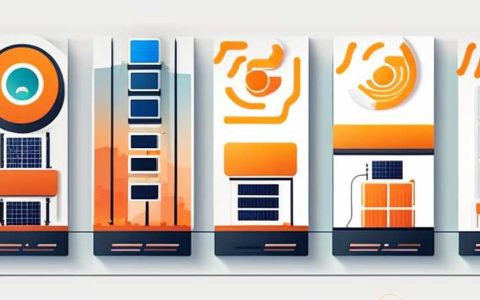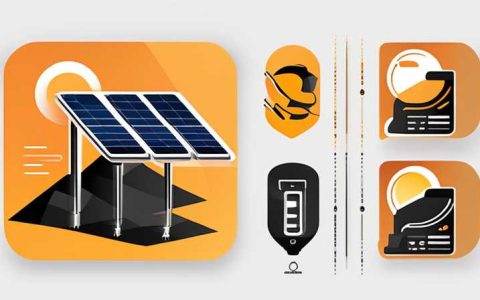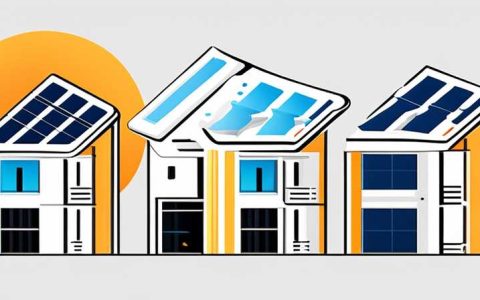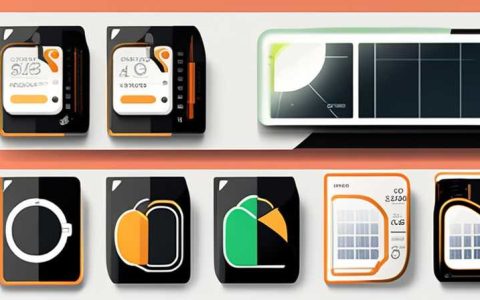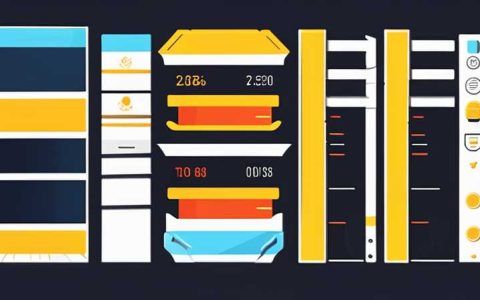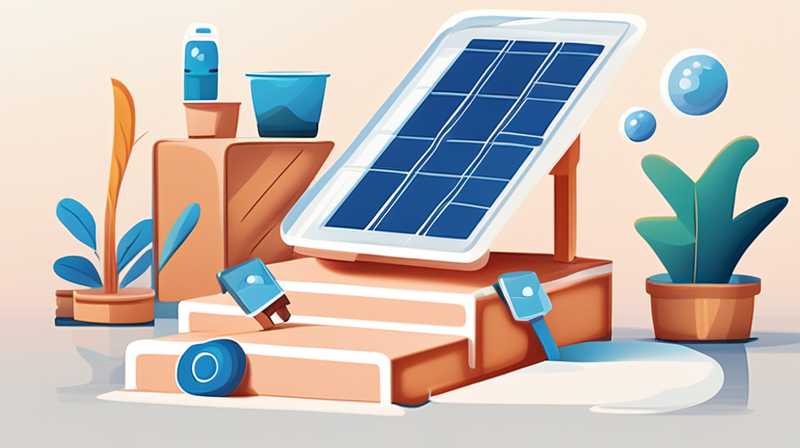
The utilization of solar panels as a source of renewable energy has become increasingly widespread, yet it is vital to scrutinize the inherent challenges linked with their upkeep, specifically regarding the process of cleaning these installations. 1. Understanding the costs involved, 2. Identifying the potential environmental impacts, 3. Assessing the risks of damage to panels, 4. Evaluating labor and time requirements. The cleaning of solar panels, while crucial to maintaining their efficiency, can incur significant expenses due to specialized equipment and labor. Moreover, there are environmental concerns, such as water usage and chemical runoff from cleaning solutions. Furthermore, improper cleaning techniques may result in physical damage to the panels, necessitating costly repairs or replacements. Additionally, the logistical aspects of cleaning solar panels can present challenges, including accessibility issues and scheduling conflicts.
1. UNDERSTANDING THE COSTS INVOLVED
When engaging in the upkeep of solar installations, a significant concern arises regarding the financial implications associated with cleaning. The initial investment in solar technology often involves careful budgeting, and the ongoing costs tied to maintenance, especially cleaning, can exacerbate the overall expenditures.
The labor required for the upkeep of solar panels can be substantial, as these tasks are frequently not suited for untrained individuals. Specialized professionals are generally needed, leading to increased labor costs. Furthermore, the equipment required for effective solar panel cleaning—such as water-fed poles, soft brushes, and sometimes even hazardous cleaning solutions—can drive expenses further upward.
Most importantly, both residential and commercial solar panel users must ensure that they budget sufficiently for periodic cleaning, particularly in regions prone to dust accumulation or particulate deposition. Regular maintenance directly correlates to the efficiency of the solar panels; neglected panels may lead to decreased energy output, ultimately resulting in a loss of return on investment.
2. IDENTIFYING THE POTENTIAL ENVIRONMENTAL IMPACTS
While the aim of utilizing solar energy is often to reduce carbon footprints and promote sustainability, the environmental consequences of cleaning processes merit attention. One major concern is water consumption, particularly in areas facing water scarcity. Traditional cleaning methods often require significant amounts of water, which raises ethical as well as practical questions regarding sustainability.
In addition to water concerns, there are potential shortcomings related to the chemicals that may be utilized in the cleaning process. While some cleaning agents are effective, they can pose environmental risks if not employed judiciously. The runoff from cleaning solutions can contaminate local water supplies or harm surrounding ecosystems, particularly in sensitive areas.
As the solar energy sector continues to expand, there is an increasing emphasis on developing cleaning methods that minimize environmental impacts. Innovations such as using recycled water or employing biodegradable cleaning agents are steps in the right direction. Solar installation companies are encouraged to adopt practices that align with environmental sustainability.
3. ASSESSING THE RISKS OF DAMAGE TO PANELS
One pressing issue tied to solar panel maintenance is the risk of potential damage during the cleaning process. Solar panels are robustly constructed, yet they are not impervious to harm when inadequate techniques or equipment are utilized. The application of excessive pressure, abrasive materials, or the use of inappropriate cleaning tools can lead to scratches, cracks, or chip damage, ultimately compromising output efficiency.
Another danger lies in the possibility of falls or accidents involved in the actual cleaning process. For residential panels located on rooftops, the technicalities of accessing them safely can become overwhelming. The employment of ladders, scaffolding, or harnesses adds complexity to the task, amplifying risks for workers. Inappropriate safety measures can lead to injuries, not only to the workers but also to the integrity of the solar installation.
Training and proper procedural guidelines must be implemented to mitigate these risks. Engaging qualified cleaning services or equipping staff with proper safety gear and education should be considered paramount to avoid the repercussions of poorly executed cleaning tasks.
4. EVALUATING LABOR AND TIME REQUIREMENTS
The practical considerations concerning labor and time cannot be overlooked when assessing solar panel cleaning. For many installations, especially large commercial sites, the required manpower can be extensive. Sufficient personnel must be allocated not only for the cleaning itself but also for preparatory and follow-up activities. This allocation of resources can strain operational capacities.
Moreover, the timing of the cleaning process is critical. Scheduling outages in production or finding suitable times to conduct cleanings can conflict with peak utilization periods. For residential solar owners, this may translate to days or even weeks of waiting for optimum conditions or for the right service providers to become available.
Lastly, the frequency of cleaning adds to the complexity of the situation. Factors such as local weather patterns, proximity to pollution sources, or seasonal conditions can dictate how often a solar installation needs to be serviced. Finding a reliable balance will require strategic planning to ensure that solar panels maintain their efficiency without creating logistical burdens.
FREQUENTLY ASKED QUESTIONS
IS SOLAR PANEL CLEANING REALLY NECESSARY?
Absolutely, solar panel cleaning is critical for ensuring their efficiency. Dust, dirt, and other debris can significantly diminish energy production. Panels must be kept clean to allow maximum sunlight exposure for optimal electricity generation. Routine checks and maintenance can enhance the panels’ lifespan while ensuring peak operational performance. Ignoring cleaning can lead to decrease yields and potential financial losses over time, particularly in dust-prone regions.
CAN SOLAR PANELS BE CLEANED WITH JUST WATER?
While water is the primary component used during the cleaning process, the effectiveness of using solely water may be limited. Solar panels often require the removal of stubborn grime or oily residues, which may necessitate the utilization of specialized cleaning solutions. However, practitioners are urged to select environmentally-friendly substances that will not cause harm to the panels or surrounding areas. Using water exclusively can be sufficient for general cleanings but might not resolve tougher buildup.
HOW OFTEN SHOULD SOLAR PANELS BE CLEANED?
The frequency of solar panel cleaning typically depends on environmental factors. In regions with heavy dust accumulation or high levels of pollution, panels may require cleaning every couple of months. Conversely, in cleaner climates, it may suffice to clean the panels biannually. It is prudent for users to monitor their energy output to gauge whether cleaning is necessary, as performance dips can be indicative of inadequate maintenance practices.
In summary, considering the disadvantages associated with solar cleaning is vital for maximizing the efficacy of solar panel installations. The financial implications can significantly impact operational budgets, compelling users to come to terms with these costs. The environmental concerns related to both water usage and chemical runoff emphasize the need for sustainable practices. Likewise, recognizing risks of damage during cleaning serves as a crucial reminder of the importance of proper technique and safety measures. Lastly, evaluating labor and time requirements helps in understanding that efficient solar panel maintenance is more complex than it may initially appear. Users must weigh these challenges against the benefits to ensure that the transition to solar energy is both sustainable and economically viable. As solar technology evolves, so too does the landscape of maintenance practices, which can lead to more environmentally responsible and cost-effective solutions in the future. There exists a pressing necessity for stakeholders to remain vigilant about the implications of cleaning processes to maintain optimal performance of solar panels while adhering to principles of sustainability and safety.
Original article by NenPower, If reposted, please credit the source: https://nenpower.com/blog/what-are-the-disadvantages-of-solar-cleaning/



